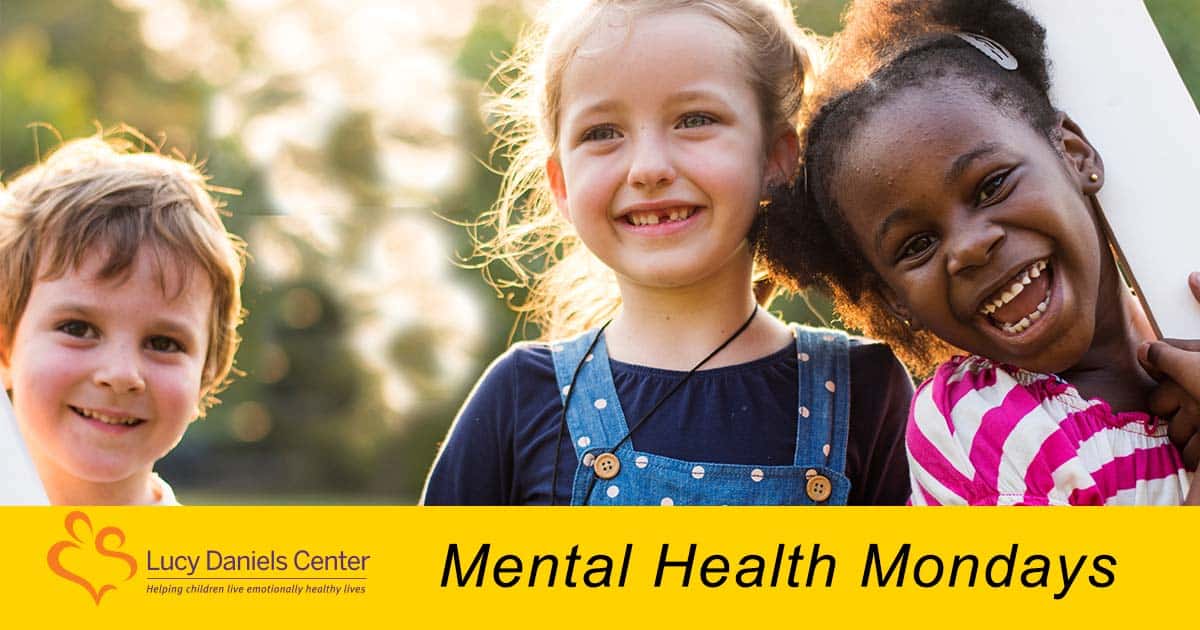Mental Health Mondays
When Children Say “I’m Bored”: Understanding a Child’s Capacity to Be Alone
“I’m bored!” What parent hasn’t heard this complaint from their children? Why do some children feel bored when they are surrounded by toys while others entertain themselves with their imagination alone? What’s a helpful way to respond to complaints of boredom? To begin to answer these questions, this month’s column will focus on understanding boredom as, in part, a reaction to uncomfortable emotional states.
What does “I’m bored” mean to a child?
Let’s first consider what is probably not boring to a young child: snuggles with mommy or daddy, an afternoon with friends at the playground, and family game night. Children rarely – if ever – complain that such activities involving companionship are boring. Besides the obvious factor of the external entertainment, what is the common theme in these experiences? In these and other similar situations, children are connected and engaged in some way with others which means that they do not have to be alone with their thoughts. Worries and uncomfortable feelings tend to feel less uncomfortable – or are not even felt – in the company and with the distraction of supportive people.
So, in what kinds of situations do some children find themselves feeling bored? Tasks that involve taking responsibility and ownership over one’s autonomy (playing or doing schoolwork independently, cleaning up, or getting ready for bed) and times when a child has to be alone often are the ones that are dubbed boring. If a child is upset or worried for other reasons, even very mundane ones, and is then asked to embark on a task independently, being alone with the task becomes an even bigger challenge as the task is no longer just the task: it is the task plus the company of the uncomfortable feelings. Children tend to feel less comfortable on their own – and alone with their own thoughts – when they are angry, sad, upset, or worried.
Boredom is a state of mind rather than a state of affairs
Taking into consideration that boredom is a statement about not wanting to be alone with one’s own thoughts, we can begin to see that a complaint about being bored is more likely a complaint about one’s feelings rather than the external components (the toys or the activities available). Therefore, “I’m bored” can be understood as meaning I don’t like being alone or I’m uncomfortable with how I’m feeling and nothing feels good enough/being with you or doing something exciting that will pull me outside myself seems to be the best solution right now.
When boredom is understood in this way – as a reaction to feelings – we can focus on it as an inside problem rather than a problem with the (external) environment. The best kind of help for an inside problem is help that seeks explanation and deepens understanding of how emotions affect overall capacities and behaviors.
Outside fixes versus inside help
Outside fixes are short-term; they are changes made to the environment that temporarily cover or distract from an internal discomfort. Outside fixes such as watching a TV show or playing a video game can be quite effective in the moment, but do very little, if anything, to address or help the inside problem, or the original cause of the discomfort. They solve the immediate issue but do not help the child truly grow from the inside. To illustrate the difference between outside and inside help, consider the following:
Since four-year-old Alice’s little brother was born, she describes just about everything as boring. Before the baby’s arrival, Alice frequently played with her dolls and only occasionally checked in with her mother. Now, Alice follows her mother around as she tends to the new baby and says that her dolls (and all of her mother’s suggestions) are boring. Nothing satisfies Alice unless she has her mother’s undivided attention.
Alice’s mother has two options when it comes to helping her with her new boredom problem. She can address the problem on the outside (suggestions, distractions, and encouragement to find something to do the way she used to) or she can invite Alice to think about what is different on the inside. The latter approach can be applied to a number of behavioral changes parents notice in their children. Beginning a discussion about this can be as simple as stating an observation and showing your understanding (and acceptance) that your child is seeking your company for a genuine reason. By saying something such as, “Playing with your dolls doesn’t seem to feel good enough since Baby was born. I know things feel different now and being with me is helping you with that,” Alice’s mother will be on the road to helping her daughter look inward to understand that her boredom – as a state of mind – is a result of an internal discomfort rather than an environmental problem.
When is boredom problematic?
For some children, boredom is an ongoing problem and parents find themselves endlessly entertaining and accommodating to fulfill their child’s need for external stimulation and companionship. Children who have ongoing difficulties with feeling bored often struggle with other developmental tasks around separation (developing the capacities to comfortably be on their own) or around managing anxiety and uncomfortable feelings. For questions regarding when to seek professional help for pervasive challenges, see our article When to Seek Professional Mental Health Help (https://lucydanielscenter.org/page/when-to-seek-professional-mental-health-help) or visit our website (www.lucydanielscenter.org).
Lucy Daniels School is an emotionally safe and supportive learning environment for children preschool-5th grade. Lucy Daniels School provides an alternative choice in our therapeutic school for children who struggle emotionally and academically in a mainstream school environment. At the Lucy Daniels School, each child’s education and therapeutic program is carefully tailored to his or her needs and strengths. Parents meet regularly with a parent guidance counselor. This collaborative approach helps children progress socially and academically to become successful and competent learners.

